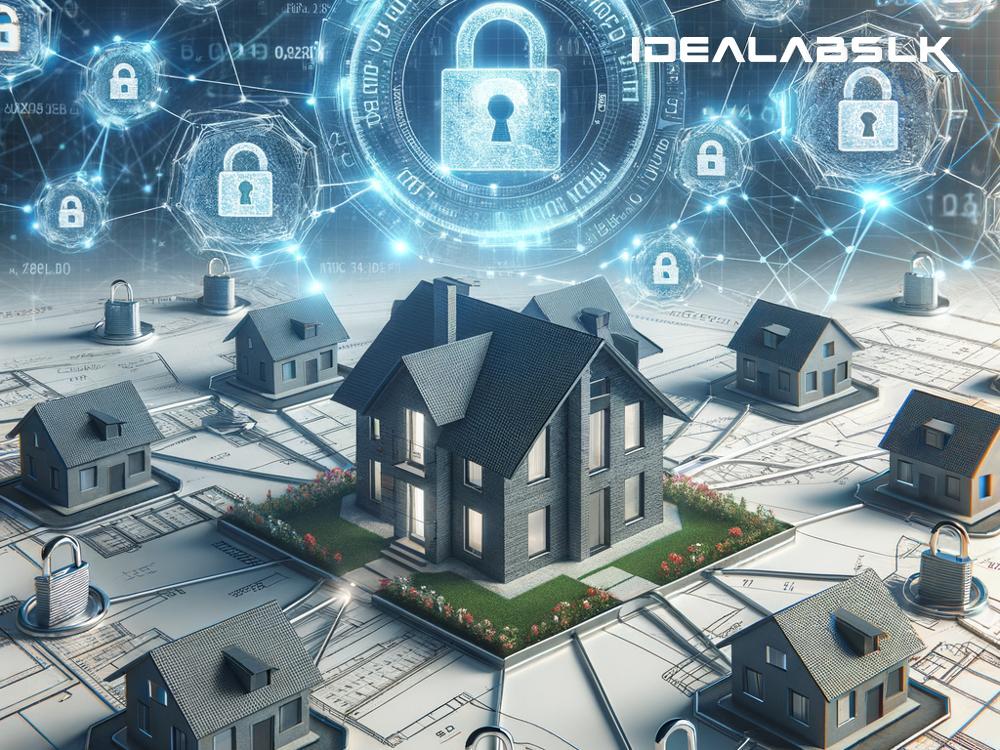Blockchain for Property Transaction Privacy: Simplifying Real Estate
The buzz around blockchain technology has touched many industries, from banking to healthcare, and now it's transforming the real estate sector. At its core, blockchain is a system of recording information in a way that makes it difficult or impossible to change, hack, or cheat the system. This innovative technology offers a promising solution to enhance property transaction privacy, a pressing concern for many in the real estate market. Let's break down how blockchain can simplify and secure real estate transactions, making the process more transparent and trustworthy.
Understanding Blockchain in Simple Terms
Imagine a digital ledger that is accessible to numerous people (let's call them participants) over the internet. Each transaction recorded on this ledger is like a block. Once a transaction is verified by these participants, it's added to a chain of previous transactions. Hence, blockchain.
What makes blockchain uniquely secure is its decentralized nature. Unlike traditional record-keeping methods, there's no central authority like a bank or government overseeing it. This means every participant can see the transactions, ensuring transparency and making it nearly impossible to tamper with the data without everyone noticing.
The Current State of Property Transactions
Traditionally, property transactions are complex, paperwork-heavy, and often lack transparency. Buyers, sellers, and various intermediaries have to navigate a maze of legal requirements, leading to high transaction costs and time delays. Furthermore, sensitive personal and financial information is handled by multiple parties, raising privacy concerns.
Blockchain to the Rescue
Blockchain can revolutionize this process in several ways, fundamentally enhancing privacy while making transactions more efficient and transparent. Let's explore how:
Enhanced Privacy
Blockchain technology allows for the creation of secure and immutable records of property transactions. This means that once a transaction is recorded on the blockchain, it cannot be altered or deleted, providing a tamper-proof history of property ownership and transactions.
Moreover, blockchain offers a form of 'pseudonymity.' Participants in a transaction can choose to disclose only the information necessary for the transaction, without revealing their entire identity. This is particularly beneficial in property deals, where privacy is paramount.
Efficient and Transparent Transactions
Blockchain can automate and streamline the property transaction process through smart contracts. These are self-executing contracts with the terms of the agreement directly written into lines of code. The process eliminates the need for intermediaries, reducing transaction times from months to days or even hours.
Furthermore, every step of the transaction process is recorded on the blockchain, providing a transparent audit trail. This visibility builds trust among the parties involved, as they can verify the authenticity and status of the transaction in real-time, without compromising their privacy.
Reduced Costs
By eliminating intermediaries and automating processes, blockchain significantly reduces the costs associated with property transactions. Fees charged by agents, lawyers, and banks can be minimized, making property transactions more accessible to a broader audience.
Real-World Applications
Several countries and companies are already exploring the use of blockchain in real estate. For instance, Sweden has tested blockchain technology to record property transactions, aiming to increase efficiency and security. Similarly, various startups are creating platforms that allow buyers, sellers, and renters to conduct transactions securely and privately on a blockchain.
Challenges and the Road Ahead
Despite its potential, blockchain in real estate is not without challenges. Regulatory hurdles, technological limitations, and the need for widespread adoption are notable obstacles. However, as technology advances and more stakeholders see its benefits, blockchain is poised to become a fundamental part of how property transactions are conducted.
Conclusion
Blockchain technology offers an innovative solution to the privacy and security concerns in property transactions. By ensuring secure, transparent, and efficient transactions, blockchain can significantly simplify real estate processes. As we move forward, the integration of blockchain in real estate promises to bring about a paradigm shift, making property transactions more accessible, private, and trustworthy for all parties involved. The future of real estate, powered by blockchain, looks bright, offering a level of privacy and security that was previously unimaginable.

